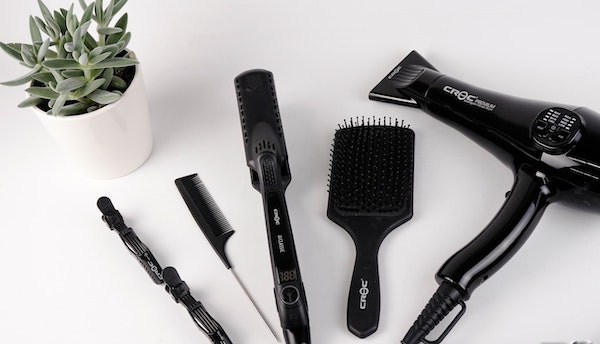If you’re finding more and more hair stuck in your shower drain as of late without a seemingly reasonable explanation, you are not alone. Aside from the involuntary sequester and general languish interspersed with anxiety, another side effect of the pandemic is hair loss.
While hair loss is significantly more common and noticeable in men, women also experience the phenomenon. And it’s becoming increasingly common across the board since the pandemic happened. According to data science firm Spate, Google searches for “hair loss” has increased eight percent in the last year.
Stress is a feeling most of us have grown accustomed to during one of the world’s longest and harshest quarantines. And according to the Mayo Clinic, there can be a direct correlation between stress and hair loss.
COVID, stress and hair loss
A study published in medical journal The Lancet also showed that 22 percent of COVID-19 patients in China experienced hair loss six months after leaving the hospital. The researchers did not specify whether the hair loss was directly caused by COVID-19, but based on the physical, mental and emotional toll patients and survivors experience, it’s most likely due to stress.

Hair loss isn’t a one-size-fits-all situation, though. There are three different types of hair loss that you can blame your stress for.
There’s telogen effluvium, which happens when you’re so stressed your hair follicles just tap out and cycle into a resting phase; trichotillomania, which is when you’re so stressed you pull your own hair out; and alopecia areata, which is when your immune system turns on your hair follicles and leaves you with seemingly more tufts of hair in your brush than on your head.
For pandemic-born hair loss, the most probable culprit is telogen effluvium. Intense negative feelings, decreased social interaction and overall sense of nauseating dread have most likely forced our follicles into taking a much-needed time out (which is something we wish we could do).
While the telogen effluvium brand of hair loss is worrying—which can lead to even more stress—the good news is that it isn’t permanent.
A silver lining
According to dermatologist and associate professor of dermatology Nazanin Saedi, losing hair during this time is “temporary” and “due to a shock to the system.” Aside from the obvious, this “shock to the system” can be attributed to a change in nutrition, exercise habits, increase of workload and other factors that may be considered as stressors.
If you’re tired of sweeping your floor thrice a day and picking up extension-like bundles of hair, the first thing you can do is take a good, hard look at your diet. A few things you might want to consider skipping out on are sugar, high-mercury fish (goodbye, sushi) and food that’s high in starch. A few things you’ll want to eat more of are nuts, seeds and healthy fats (like avocado).
If you can’t be bothered, that’s okay. You can always invest in a cordless vacuum cleaner and just call it a day.











































